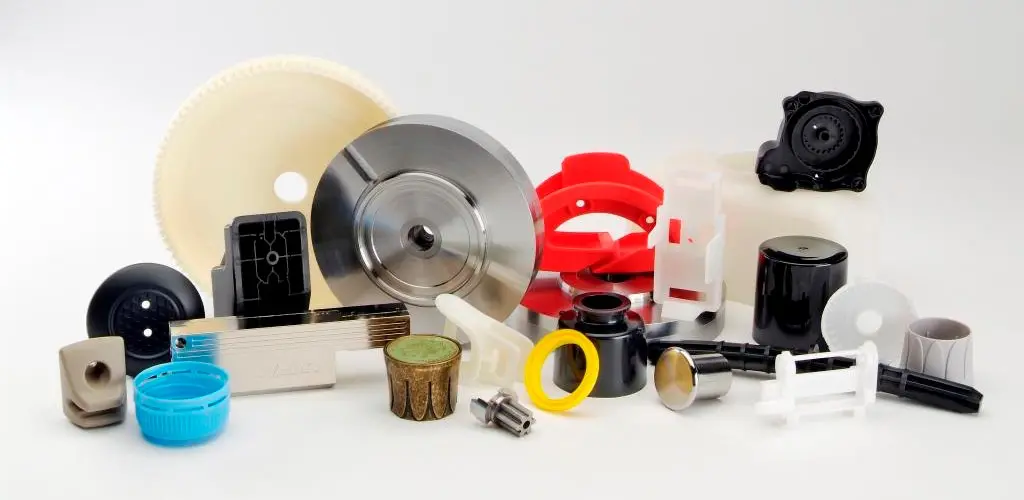Manufacturing Complex Injection Molded Parts: Challenges & Tips


Custom plastic injection molding is a widely utilized manufacturing process for producing complex plastic parts. However, certain product features and plastic materials can present challenges during the production of these molded parts.
In this article, we’ll explore the key features that make molded parts complex, the types of plastic materials that pose difficulties, proactive steps that can be taken to overcome these challenges, and the benefits of working with an experienced plastic injection molding manufacturer.
Three primary features that add to a plastic molded part’s overall complexity: threads, over-molding, and undercuts.
Injection molding threads require precise tooling and careful consideration of the thread geometry to ensure proper functionality. Working closely with an experienced injection mold manufacturing partner can help achieve accurate thread formation.
Overmolding involves molding one material over another, and it demands precise alignment and ensures adhesion between materials.
Undercuts are features that prevent the easy removal of a molded part from the mold. Complex undercuts often require specialized tooling and careful mold design, which can be expertly provided by an experienced injection molding supplier.

In addition to complex part designs, there are challenges during the material selection process too. The materials used to produce plastic molded components will vary based on specific application requirements and the environment the part will be expected to perform in.
The most challenging plastic materials to work with are high-temperature, moisture-sensitive, and warp-prone materials.
Certain plastics, such as PEEK or PEI, have high melting points, requiring precise temperature control and specialized equipment during molding to avoid degradation or insufficient flow. A skilled injection molding supplier understands the intricacies of processing high-temperature materials effectively.
There are also plastics like PEI and nylon that are highly sensitive to moisture content. Proper drying techniques and moisture control during processing are crucial to prevent defects. Not all injection molding companies have drying equipment for elevated temperatures and moisture analyzers. Check with your custom plastic injection molding partner early in your project if your part requires this.
Polypropylene and polyoxymethylene (POM) tend to warp after molding. Proper mold design, cooling, and stress-relieving techniques provided by an experienced injection molding manufacturer can mitigate this issue.
Manufacturing complex injection molded parts requires collaborating with an expert. An experienced plastic injection molding company can help you identify potential design errors, select the best material for your component, and resolve challenges as they occur.
If you need help manufacturing plastic molded components, turn to MSI Mold. Founded in 2009, we’re a U.S.A.-based plastic injection molding manufacturer with rapid prototyping, design and engineering, and assembly capabilities, and we can handle high- and low-volume orders. Please contact us today to learn more about our capabilities or to schedule a free design consultation.